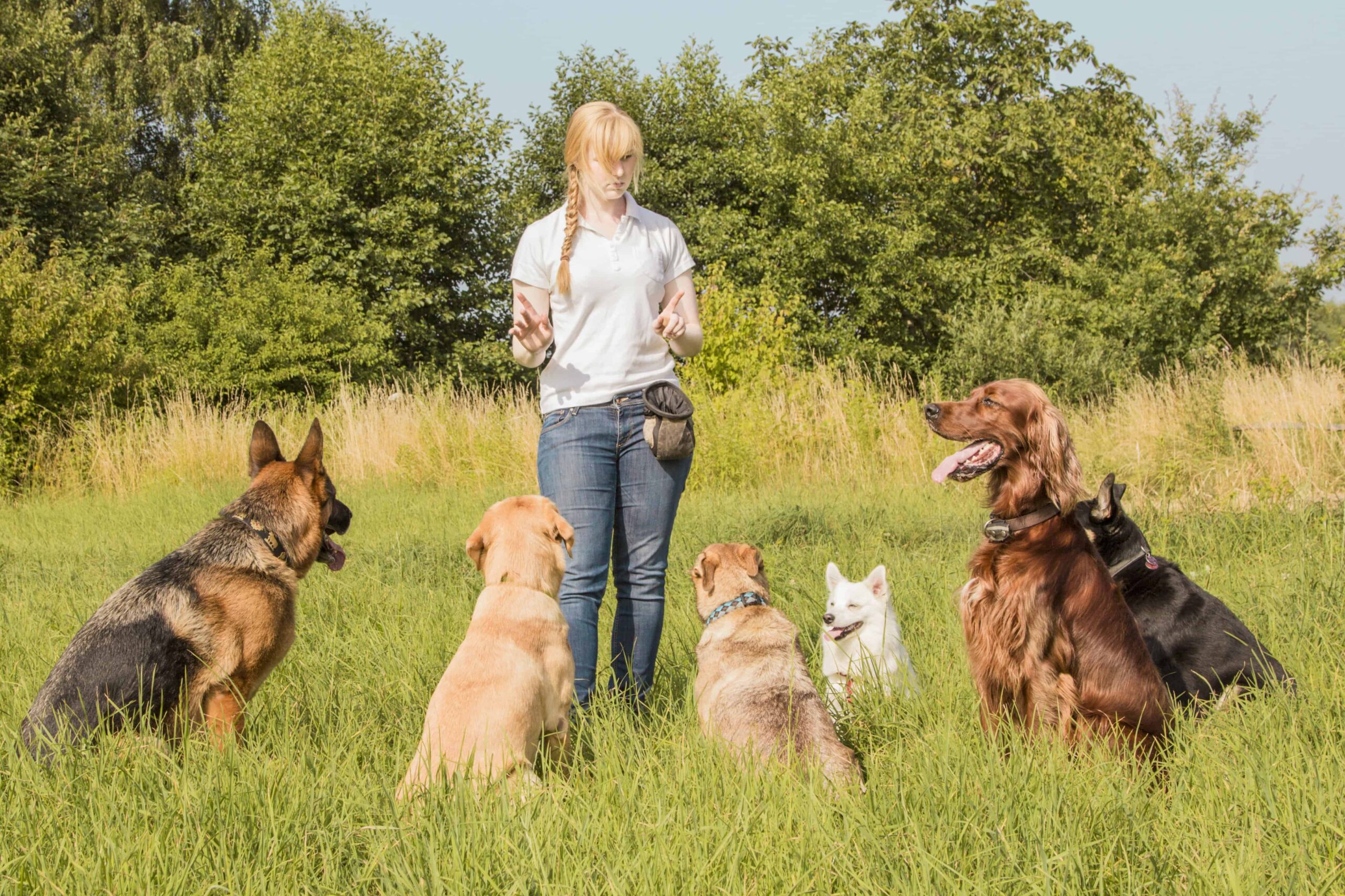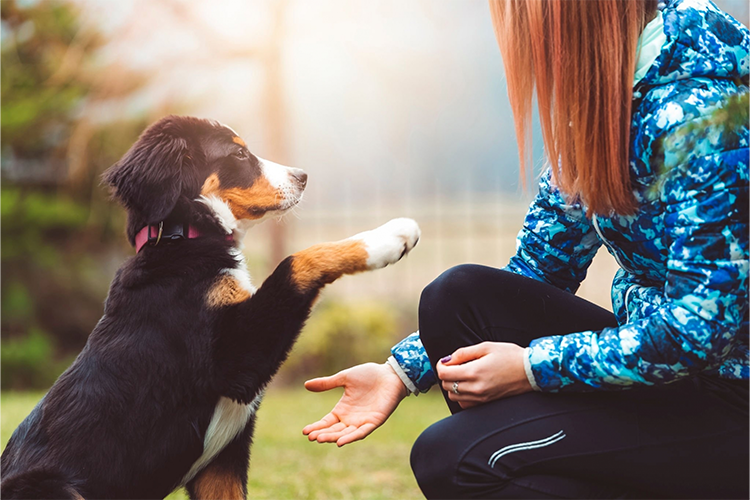Discover Top Tips for Dog Training Charlotte NC That Really Work
Discover Top Tips for Dog Training Charlotte NC That Really Work
Blog Article
Unlock Your Pet dog's Prospective: Proven Pet Training Techniques for Success
Reliable pet training is a nuanced process that hinges on understanding canine habits and employing clinically backed approaches. By integrating positive support, establishing clear commands, and prioritizing socializing, pet dog owners can grow an efficient relationship with their pet dogs.
Comprehending Canine Actions
Comprehending dog behavior is necessary for efficient training and cultivating a positive partnership between pets and their proprietors. An extensive understanding of canine body language, articulations, and social communications is important for recognizing their needs and emotions. Dogs interact primarily via non-verbal hints; for instance, a wagging tail might suggest excitement, while pinned ears can signify worry or submission.

Furthermore, environmental factors play a considerable function in shaping a pet dog's behavior. Modifications in regular, new surroundings, or the existence of unfamiliar people can cause anxiety or stress and anxiety in pet dogs. Recognizing these triggers enables owners to reduce unfavorable reactions and develop appropriate training techniques.
Inevitably, a deep understanding of pet habits lays the foundation for successful training methods, improving both actions and the total bond between the pet dog and its owner. dog training charlotte. This knowledge is indispensable for fostering a well-adjusted, happy canine friend
Favorable Support Techniques
Efficient training counts greatly on positive reinforcement methods, which have been revealed to produce substantial lead to shaping preferred habits in dogs. This approach entails compensating a canine for exhibiting details habits, thus raising the probability that these behaviors will certainly be duplicated. Incentives can take various types, including treats, praise, playthings, or play, depending upon what motivates the individual dog.

It is necessary to slowly terminate benefits as the dog discovers the behavior, transitioning to intermittent support. This strategy keeps the habits in time while protecting against dependence on consistent incentives. By concentrating on positive reinforcement, instructors can grow a relying on partnership with their pet dogs, promoting a healthy and balanced and cooperative training setting that boosts general obedience and performance.
Developing Constant Commands
A fundamental facet of successful dog training is the facility of consistent commands. Uniformity in commands is crucial for reliable communication in between the pet dog and the trainer. When commands are uniform, dogs find out to connect specific words with desired habits, which increases the training process and boosts understanding.
To establish regular commands, it is necessary that all family members use the exact same terminology and gestures. If one person makes use of "sit" while an additional states "rest down," it can create confusion for the pet. Select clear, distinct words for commands and make certain everybody involved in the pet dog's training abides by these selections.
Strengthen commands through regular method, ensuring that the canine gets adequate possibilities to react appropriately. When a dog successfully follows a command, instant positive support must follow.
Last but not least, hold your horses. Establishing consistent commands takes some time and effort. With dedication and clarity, you will assist your pet dog establish a strong understanding of assumptions, ultimately bring about a mannerly friend.
Socialization and Exposure
Interacting socially a pet dog is essential for fostering a well-adjusted and confident friend. This procedure entails subjecting your canine to a variety of environments, people, and various other pets to establish their social skills article source and adaptability. Early socializing, preferably between the ages of three to fourteen weeks, is vital, as it prepares for a pet dog's future habits.
Throughout socializing, purpose to give positive experiences in different settings, such as parks, hectic roads, and homes with various other pet dogs. Introduce your pet dog to various stimuli, consisting of audios, sights, and scents, guaranteeing that each experience is satisfying. This direct exposure assists reduce anxiety and anxiety, paving the method for an extra durable canine.
Engaging in controlled team play sessions with other pet dogs can also enhance social skills, educating your pet ideal communications and limits. Focusing on socializing will considerably add to your dog's total happiness and actions throughout their life.
Overcoming Common Training Difficulties

Canines might have a hard time to concentrate in active or unknown setups. Slowly desensitize your dog to disturbances by beginning training in a peaceful environment and slowly introducing even more stimuli as they come to be skillful.
In addition, behavioral concerns like jumping or extreme barking can become discouraging. Address these by instructing alternative habits, such as resting steadly when welcoming visitors. Uniformity and persistence are critical; enhance desired behaviors regularly and prevent abuse, which can result in confusion.
Lastly, identify that each pet is unique, and training timelines may vary. Dressmaker your strategy to your canine's specific requirements, and look for expert advice if required. With determination and the best techniques, getting rid of these difficulties can result in a trained, satisfied canine friend.
Final Thought
In final thought, unlocking a pet's prospective necessitates a detailed method that integrates an understanding of canine behavior, the application of favorable reinforcement strategies, and the facility of consistent commands. Early socialization and direct exposure to varied environments better enhance a dog's versatility and confidence. By addressing usual training difficulties with this page tailored strategies and perseverance, a cooperative and harmonious relationship in between pet and trainer can be promoted, eventually leading to a well-behaved companion with the ability of growing in different scenarios.
Efficient dog training is a nuanced procedure that hinges on recognizing canine habits and utilizing scientifically backed methods.Comprehending dog actions is important for reliable training and top article promoting a positive partnership between dogs and their proprietors.Effective training relies greatly on favorable reinforcement strategies, which have actually been shown to generate substantial results in shaping preferred habits in dogs. When commands are consistent, pets discover to link particular words with wanted behaviors, which increases the training procedure and enhances understanding.
In final thought, opening a canine's possible necessitates a detailed approach that incorporates an understanding of canine actions, the application of favorable reinforcement strategies, and the facility of constant commands.
Report this page